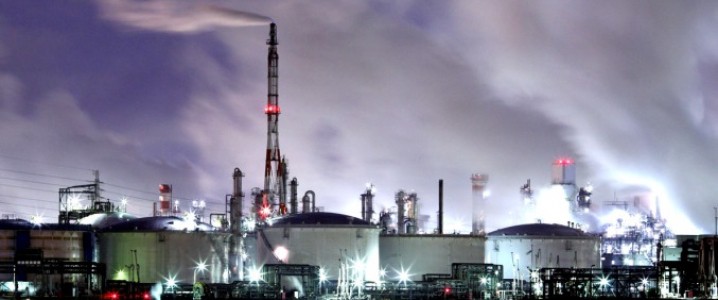
Preliminary data released on Thursday by Japan’s Ministry of Finance showed that the country’s crude oil imports from Iran dropped 42 percent month-on-month to 169,100 barrels per day (bpd) in April. The drop comes a month after its Iranian crude imports surged to 292,209 bpd. March’s surge came after the resumption of imports in February due to local refiners boosting purchases to meet term contractual requirements. February imports of Iranian crude were posted at 76,057 bpd, marking the first import of Iranian crude in four months.
Hydrocarbon anemic
However, the real story behind the numbers is Japan’s kowtow to U.S. demands that it halts Iranian crude oil shipments due to ongoing U.S. sanctions against Iran’s energy sector. In April, Japanese refiners suspended oil imports from the Islamic Republic after President Trump upped the geopolitical ante between Washington and Tehran by not extending sanction waivers past May 2 on Iranian oil imports for eight countries, including Japan. Japan for its part, with a population of only 127 million people, is the world’s third largest economy and third largest crude oil importer. Japan also remains the world’s largest liquefied natural gas (LNG) importer, ahead of China, and South Korea. Japan is also the third-largest importer of coal behind India and China.
Trump’s move to suspend Iranian oil sanctions waivers caught major oil importers as well as markets off-guard since most expected either a continuation of the waivers to keep more barrels on the global markets to help offset the ongoing OPEC+ supply cut to remove 1.2 million bpd.
The removal of oil import waivers put Japan in a tight spot since it has to maintain its close relationship with the U.S. not only to maintain strong economic ties, but it needs U.S. military cooperation against a rising and increasingly aggressive China as Beijing expands its influence in both the heavily contested South China Sea as well as the East China Sea where the two countries have overlapping territorial claims.
The quandary for Japan is that the country is hydrocarbon anemic and produces virtually no oil and gas. Japan imports more than 80 percent of its oil and gas from abroad. Japan has limited domestic energy resources, and is currently only producing less than 10 percent of its total energy consumption domestically ccording to the U.S. Energy Information Administration’s (EIA) most recent analysis of Japan’s energy sector.
Trade pressure from Washington
The U.S. is also calling Japan on the carpet for what it says are trade imbalances. During his state visit to Japan on Sunday and Monday, President Trump talked tough on trade but also gave his Japanese counterpart and ally, Prime Minister Shinzo Abe, some breathing room. Trump indicated Washington would not press Tokyo for a bilateral trade deal until after the Upper House elections in July, a move that the Japan Times said was apparently taking into consideration Abe’s desire to avoid pressure to cut tariffs, which may affect farmers. Nonetheless, Trump chastised Japan about the “tremendous” trade imbalance between the two countries and said there would be some announcements regarding bilateral trade “probably in August.”
Abe said on Monday Japan will cooperate with the U.S. and also play a constructive role in helping reduce tensions with Iran as his country navigates Washington’s sanctions against Tehran and hopes for an early restoration of Iranian crude imports.
